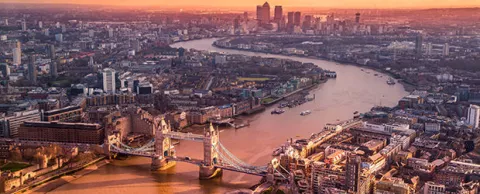
We’re often asked, “What is the smartest city?” It’s an impossible question to answer, although our Readiness Challenge winners are a good place to start.
The reason it’s such an impossible question is that people rarely agree on the criteria. Are you looking for the sheer number of shiny new projects? Are you judging them based on how well their projects are interconnected? Are you judging them based on how well they serve the public? Are you basing your ranking on how well they serve people who are typically underserved?
Eden Strategy Institute and ONG&ONG studied 140 cities worldwide and have put together their list of the 50 smartest cities. While we can debate whether or not we agree with the final positions, what’s interesting about their list is how well it illustrates the problem with the task: even their top cities had significant gaps.
Second-place city Singapore ranked below average for developing people-centric initiatives. San Francisco and Seattle (11th and 18th overall) ranked very strongly for having great smart cities visions, but relatively poorly for having strong leadership. Columbus, OH, which won the smart cities challenge from the U.S. Department of Transportation, ranked high for its vision and budget, but at the back of the pack for having the in-house resources and smart policies needed to bring the vision to life.
We all have gaps, so it’s worth putting our 2019 Readiness Challenge on your radar. It’s not so much about who comes in first as it is about going through a process that helps you build on your strengths and identify and close those gaps. To that end, everyone’s a winner. You can get on the interest list now. (Special bonus: applying cities get free access to our Smart Cities Project Activator.) — Kevin Ebi
Who are the smartest cities in the world? Eden Strategy Institute and ONG&ONG have produced their list of the 50 smartest cities, a ranking based on scope, integration and scale of the initiatives in each.
In order, the top 5 are London, Singapore, Seoul, New York and Helsinki, but the ranking finds some striking differences in the approaches used by many of the leaders.
How much do we focus on?
Size isn’t everything. The study authors found that some of the largest cities have very narrow visions. Tokyo (which ranked 28th) has some of the largest projects in terms of scale, but some of the narrowest in terms of breadth. They write that Tokyo’s smart cities plan is mainly just a sustainability plan, focusing almost exclusively on reducing food waste and energy usage.
By contrast, Vienna has more than 100 projects in the works spanning a wide range from energy to healthcare, education to social inclusion. That more holistic view of what it means to be a smart city propelled it to 12th place.
It’s about your citizens
Cities that fared well in the ranking tended to put their residents at the center of their smart cities visions. London ranked at the top largely because of its Smart London 2.0 plan that emphasizes digital inclusion.
Third-place Seoul has a mobile website that provides residents with more than 60 real-time services and collected their suggestions as well (it also allocated 5% of its budget to implement projects suggested by citizens through the app).
Notably, some cities produced considerable results for their residents through very small projects. Iceland’s capital city of Reykjavik (44th on the list) spent just $32,000 to build a participatory budget portal that can be used by all residents. More than 600 ideas from citizens have already been implemented.
Are you still operating in silos?
Cities that did well also tended to operate as one, concentrating on integrating disparate systems to provide more streamlined and innovative services. It used New York as an example of a best practice.
Have citizens ever complained that they don’t know who to call in your city? New York was called out for its work to consolidate 40 city departments into a single municipal services hotline.



